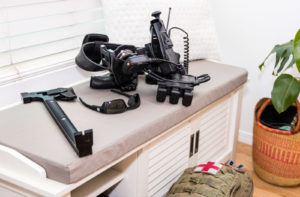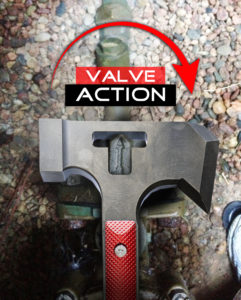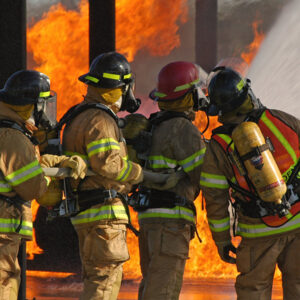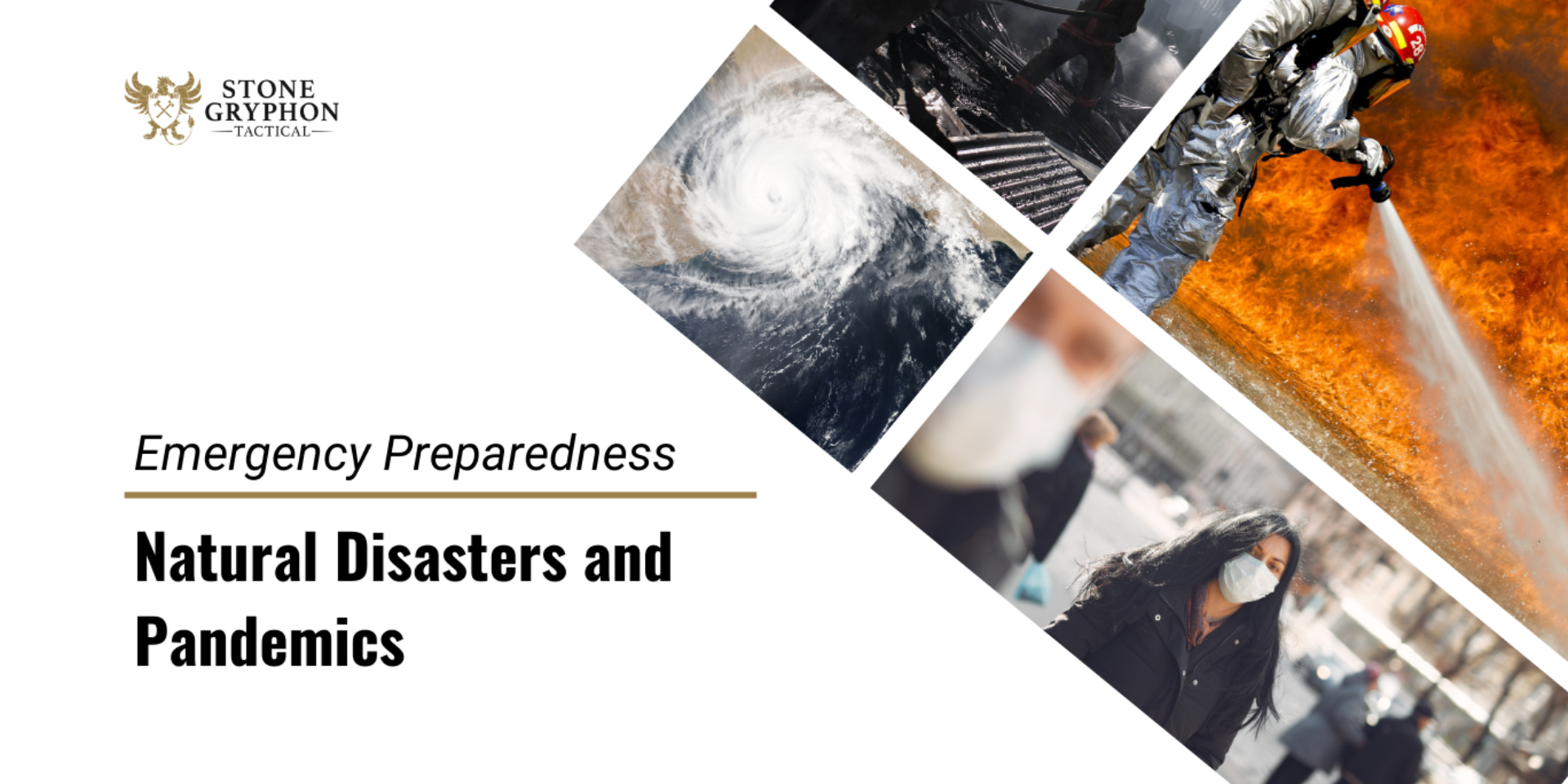At the beginning of the COVID-19 pandemic, many of us were unprepared for what happened. We saw people flocking to stores to stock up on essential items resulting in empty isles and product shortages. People bought up all the toilet paper, cold/flu medicine, hand sanitizer, cleaning products, and non-perishable foods.
Though this is a common response during a disaster situation, there are ways you can prepare now for any situation. Being prepared before a disaster strikes not only relieves anxiety but also allows you to focus on your family’s safety during a disaster.
Are you prepared if a natural disaster comes your way?
Disaster prepping is more than stockpiling food and essentials. It involves researching natural disasters that may occur in your region and knowing the correct steps you need to take to overcome them.
We suggest making a plan with your family for every situation you may face. Sign up for emergency alerts on your cell phone so you can track natural disasters in your area.
Pack an emergency kit, both for evacuation and bunkering down in your home. There are many recommendations on emergency kits, though we suggest starting with minimum items and adding to it over time. You can find emergency kit recommendations from organizations like the Red Cross, Ready.gov, and other prepper websites.
Your emergency kit should have a multi-purpose tool, such as the 4-in-1 CTAX rescue and entry multi-tool, for assisting with a variety of disaster scenarios.
If you live in an area with high natural disaster probability, make sure you are prepared for each type of disaster. We’ve compiled some information to help you get started with natural disaster preparedness.
 For those that live in the Midwest or Southeast, tornadoes are a normal occurrence, though it’s best to be prepared for the worst-case scenario. Here are some tips to get you started:
For those that live in the Midwest or Southeast, tornadoes are a normal occurrence, though it’s best to be prepared for the worst-case scenario. Here are some tips to get you started:
- Know the signs of a tornado. This includes a rotating, funnel-shaped cloud; an approaching cloud of debris; or a loud roar sound.
- Sign up for emergency alerts to stay up-to-date on tornadoes in your area.
- Have a safe shelter set up in your home with important documents and an emergency kit.
 If hurricanes happen in your area, be prepared and stay alert during storm season. You must be prepared to evacuate at a moment’s notice. Here are some ways you can prepare:
If hurricanes happen in your area, be prepared and stay alert during storm season. You must be prepared to evacuate at a moment’s notice. Here are some ways you can prepare:
- Know the signs and seasons for hurricanes in your area.
- Sign up for emergency alerts to stay up-to-date on hurricanes in your area.
- Know your neighbors and create plans for the elderly and disabled who may need your assistance.
Have an evacuation plan and an emergency kit with important documents and essentials.
 Preparing for earthquakes involves having an emergency plan, practicing “drop, cover, and hold on,” and securing large items in your home.
Preparing for earthquakes involves having an emergency plan, practicing “drop, cover, and hold on,” and securing large items in your home.
It’s also good to have a multi-tool with a gas/water valve wrench for gas or water line breaks that happen when the ground shifts during earthquakes to avoid leaks or even explosions.
 Wildfires can happen anywhere and are especially common in arid climates. Since evacuating your home is already very stressful, these tips can help you feel ready when a wildfire happens.
Wildfires can happen anywhere and are especially common in arid climates. Since evacuating your home is already very stressful, these tips can help you feel ready when a wildfire happens.
- Have a to-go bag in your vehicle at all times. Similar to earthquakes, you want to have a multi-tool that can assist with turning off gas valves during wildfires.
- Ensure you have important documents such as insurance policies and personal documents easily accessible to take with you when you evacuate.
- Be prepared with an evacuation plan, including relocating livestock or animals.
- Make your home fire-adapted by creating defensible space, using less-flammable building materials, and installing a water source with a hose.
 Floods may leave you stranded away from home or locked in your home. You should be prepared for any situation, especially if you live or work in an area prone to flooding.
Floods may leave you stranded away from home or locked in your home. You should be prepared for any situation, especially if you live or work in an area prone to flooding.
- Make a plan for any flooding situation.
- Have an emergency to-go bag in your vehicle as well as enough supplies in your home for several days.
- Ensure important documents are in a water-proof container.
- If flooding is reported to happen, get sandbags to protect your home. These are often offered for free from city or state agencies.
- Invest in a battery-powered sub pump for below and around your home.
 COVID-19 caused many of us to rethink our pandemic preparedness. It’s best to be up-to-date on medical exams and shots and keep good medical documentation. You should also stock up on disinfectants, cleaning supplies, and non-prescription medicines for cold and flu. Lastly, have a plan with your family for quarantine situations.
COVID-19 caused many of us to rethink our pandemic preparedness. It’s best to be up-to-date on medical exams and shots and keep good medical documentation. You should also stock up on disinfectants, cleaning supplies, and non-prescription medicines for cold and flu. Lastly, have a plan with your family for quarantine situations.
By being prepared for any natural disaster that may hit your area, you are ensuring you and your loved one’s health and safety. Remember to have a plan, an emergency kit with the CTAX rescue multi-tool, and stay on top of emergency alerts to be prepared for any disaster.



